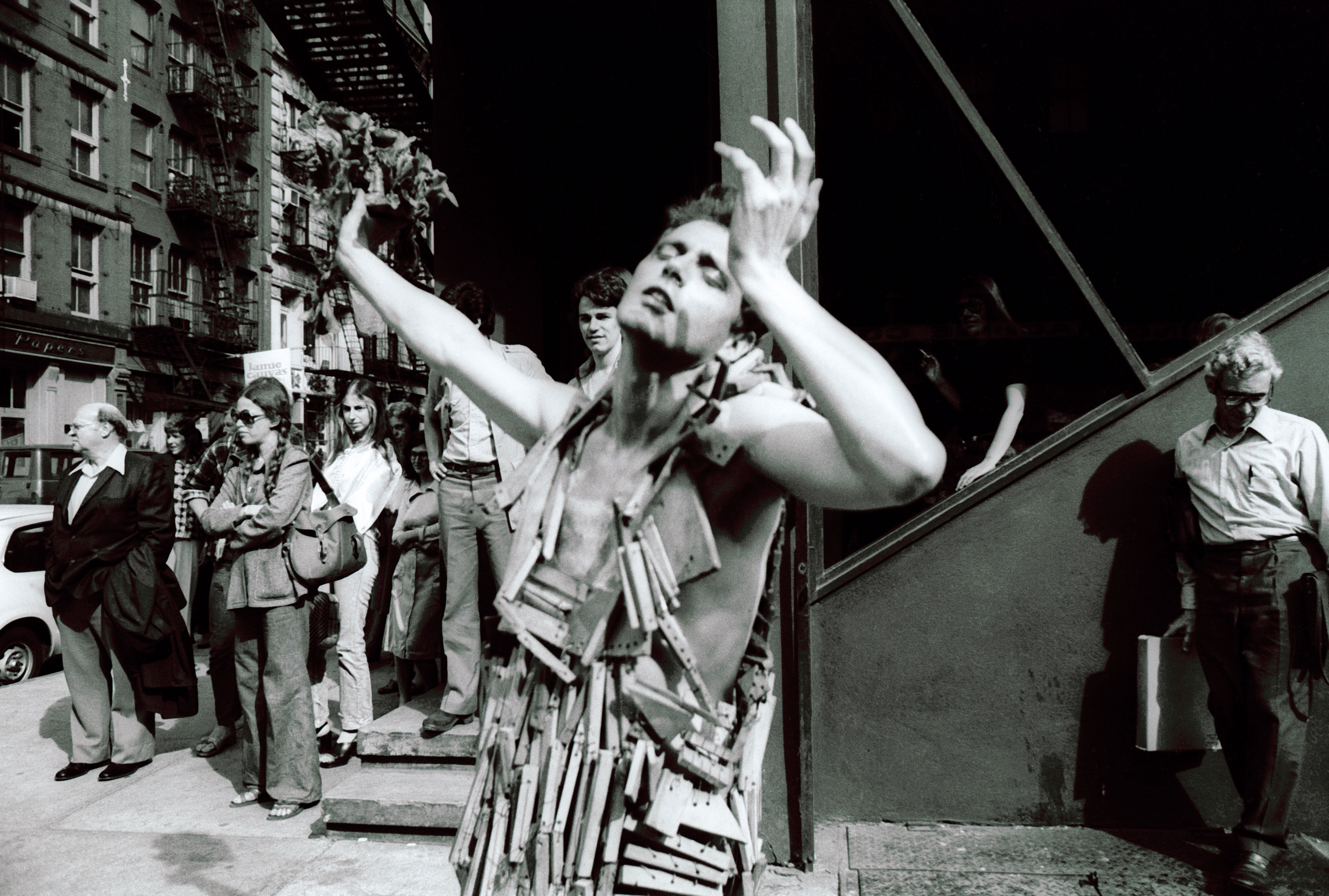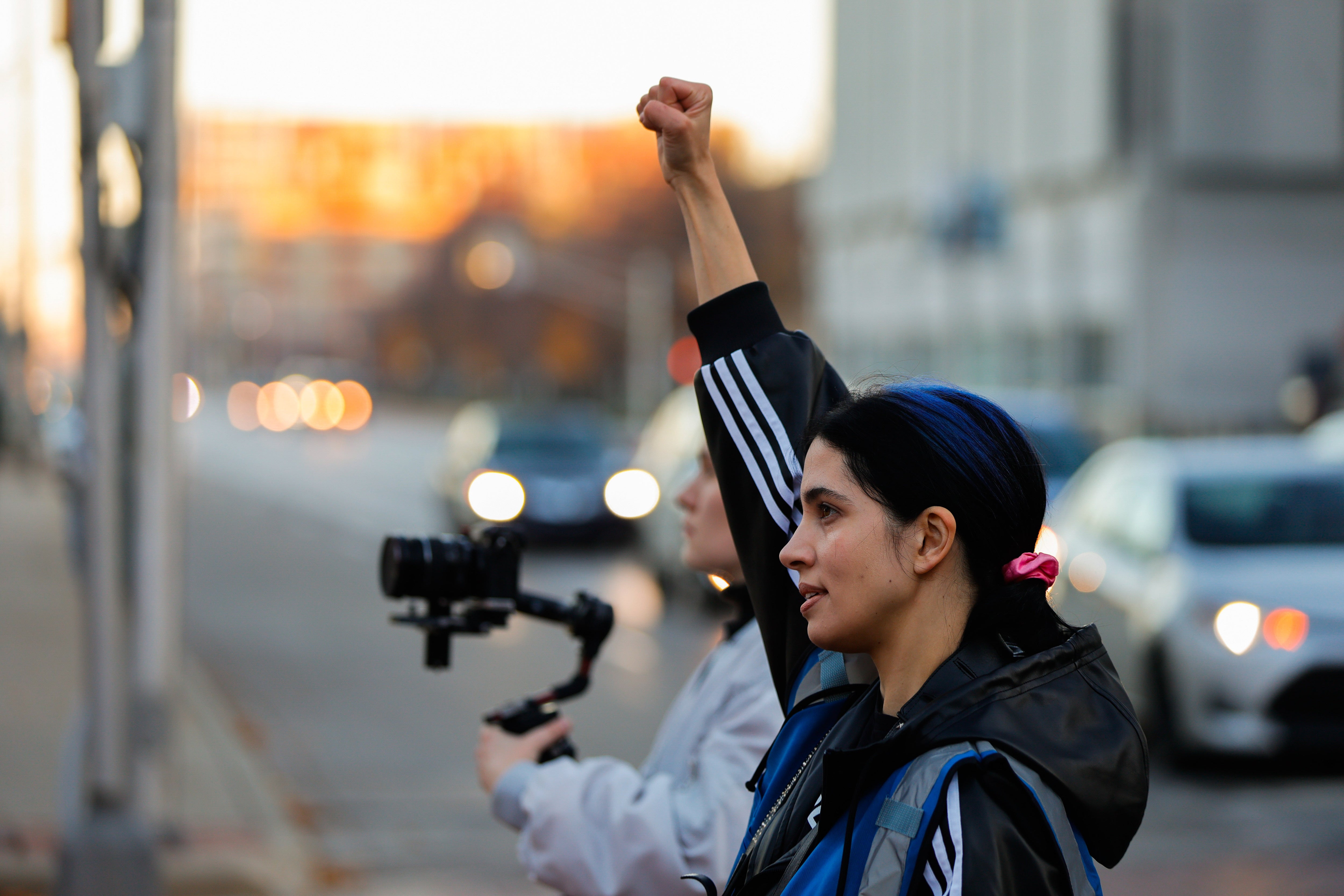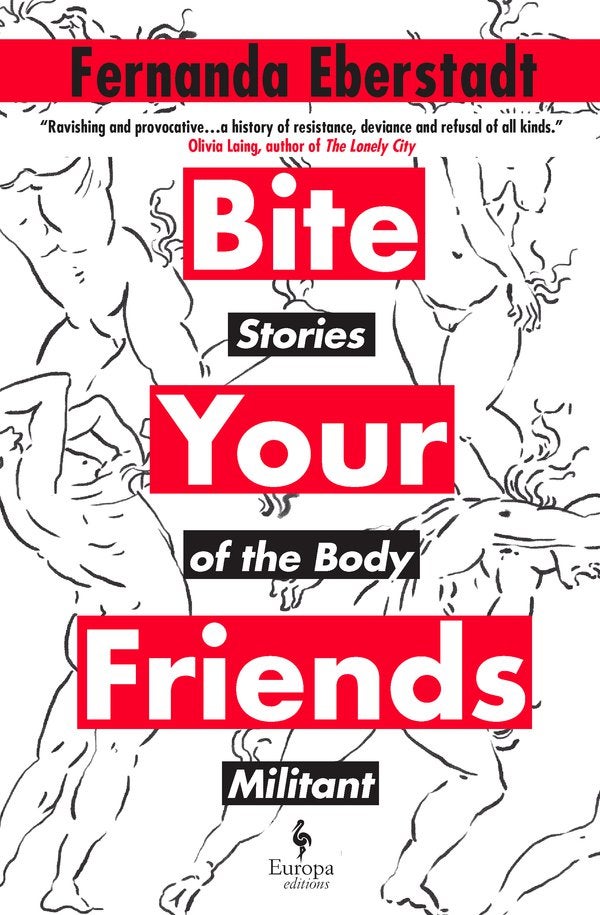Fernanda Eberstadt’s latest book is a masterclass in how to live an ‘outrageous’ life
Part memoir, part challenge to the stigma of indifference, the author’s latest work ‘Bite Your Friends’ is a thrilling look at saints, thinkers and outcasts existing in an intolerant society, writes Robert McCrum


In New York, every new generation reinvents the city. In the Fifties, Manhattan was all about Ginsberg, Kerouac and the footloose Beats; in the Sixties, Mailer, Wolfe and the self-dramatising New Journalists.
After the Summer of Love and Woodstock, the Big Apple began to rot. When US president Ford said “drop dead” to the city, Greenwich Village was already deep into the new weird. This is where Bite Your Friends begins.
At midnight one evening in April 1975, having dined with her parents, this outre teenager Fernanda Eberstadt, and her best friend, a performance artist named Stephen Varble, renowned for holding up a branch of Chemical Bank in a gown made of dollar bills, with breasts fashioned from twin condoms full of fake blood, were getting dressed for a night out.
He was in an emerald green ostrich-feather jacket, and she in an ankle-length YSL cavalry coat. Juiced up on parental sherry, they headed downtown to Lady Astor’s, a nightspot on Lafayette Street, to join a congenial party of “men in pink satin thigh boots”, where they sat on a sofa “talking about killing ourselves and Dostoevsky”.
Welcome to Eberstadt’s “stories of the body militant”, a literary insurrection from the kind of semi-gonzo journalist you only find in America: exuberant, visceral, headstrong, and never less than highly addictive.
A writer who takes good care to possess her readers like a drug, Eberstadt is the author of five novels (The Furies, Rat; etc), an account of living with Romany musicians in the South of France, and now this.
Bite Your Friends takes its title – of course! – from Diogenes, “the mad dog of Greek philosophy” (who says he bites his friends to heal them), and looks at lives scourged by the stigma of difference, a theme close to her thunderous heart and also adjacent to her own remarkable biography.
Back on terra firma, Eberstadt’s mother Isabel was a glamorous New York legend, Warhol muse, and daughter of Ogden Nash, the surreal humorist and poet whose “Adventures of Isabel” describes a self-reliant young lady who eats a bear, drinks a witch and merrily decapitates a horrid giant.
Bite Your Friends, like an offbeat footnote to that saga, examines the lives of saints, thinkers and drag queens whose inability to fit in compels them to “fight for other outcasts”.
Forget Diogenes; this is essentially a memoir, loosely located between 1966 (Truman Capote’s Black and White Ball) and 1984 (the arrival of Aids). It starts with the beautiful, much-scarred, figure of Eberstadt’s beloved mother, for whom “the stigma of difference” holds the key to her scaly posthumous grip on her daughter’s life and work. Isabel died in 2006.
Even now, Eberstadt is plainly awestruck by the woman who “dropped out of college at 20, married my father at 21, [gave birth] to her first child at 22, and published her first novel three years later”.

Eberstadt mere is a hard act to follow. With her moon-white skin and scarred body, she became the disturbing presence from whom her precocious daughter acquired what she describes as her trust in “the truths taught by bodily and psychic pain”.
Besides, these lessons were not wholly excruciating. As a child, Fernanda Eberstadt says she floated “in the amniotic fluid of her [mother’s] attention”. Her readers, similarly, may find a strange kind of comfort in this unique memoir.
To open Bite Your Friends is to step, after hours, into a thrilling, subversive and extraordinary downtown dive, somewhere in the Village, and to fall into a heady all-night conversation, a monologue that’s as witty and erudite as it is both untethered and brilliant, with a writer who is only too delighted to “come clean about their own ogre-ishness”, hates her body, “can’t remember a time when she didn’t want to be a boy”, and confides, with a ghoul’s relish, that “transmuting experience into art involves the eating of human flesh, your own, but other people’s too”.
The “other people” in Bite Your Friends become the characters – witnesses to the stigma of difference – who rescue this memoir from its own delirium.
Eberstadt’s heroes, from the school of Diogenes the Cynic, are the prophets of bodily freedom who have given her life meaning: the filmmaker and poet Pier Paolo Pasolini; the philosopher Michel Foucault whose cult ritualised “epreuves” (tests), self-rupture, and the intimacies of death; and the Russian artist Pyotr Pavlensky (who protested against the tyranny of Vladimir Putin by nailing his scrotum to a pavement in Red Square).

In Russia, Eberstadt finds a place for her encounter with Nadya Tolokonnikova, the punk feminist from Pussy Riot who also wrestles with this tormenting question: what in the contemporary world can provoke in the ordinary individual, both the craving and the capacity for an absolute sacrifice? In other words, how does one get to be brave? The answer, in Eberstadt’s telling, comes from their “Punk Prayer”, an arresting, cartoonish assault on Putin for which three Pussy Rioters were jailed.
Just as some readers are beginning to ask themselves the question “where will this end?”, the benign and comforting figure of Ogden Nash steps into the frame with a poem about the horrors of ageing.
In a poignant and telling aside, his granddaughter confesses, “They weren’t meant to age, the beauties in my family.” We are back with the “adventures” of her mother Isabel who, in extremis, “didn’t scream or scurry”.
In the words of the great nonsense poet, “She took those pills from the pill-concocter/ And Isabel calmly cured the doctor”.
In literature, says another poet, we “commune with the dead”. Bite Your Friends is a remarkable act of self-haunting, a work of art that reminds us that the job of the writer in society is to Make it New and be always out front.
In this un-memoir memoir, Fernanda Eberstadt has given rare and singular expression to a currently unfashionable but ancient and noble idea: the avant-garde.
‘Bite Your Friends: Stories of the Body Militant’ by Fernanda Eberstadt (Europa Editions) is available to preorder now
Join our commenting forum
Join thought-provoking conversations, follow other Independent readers and see their replies
Comments


Bookmark popover
Removed from bookmarks